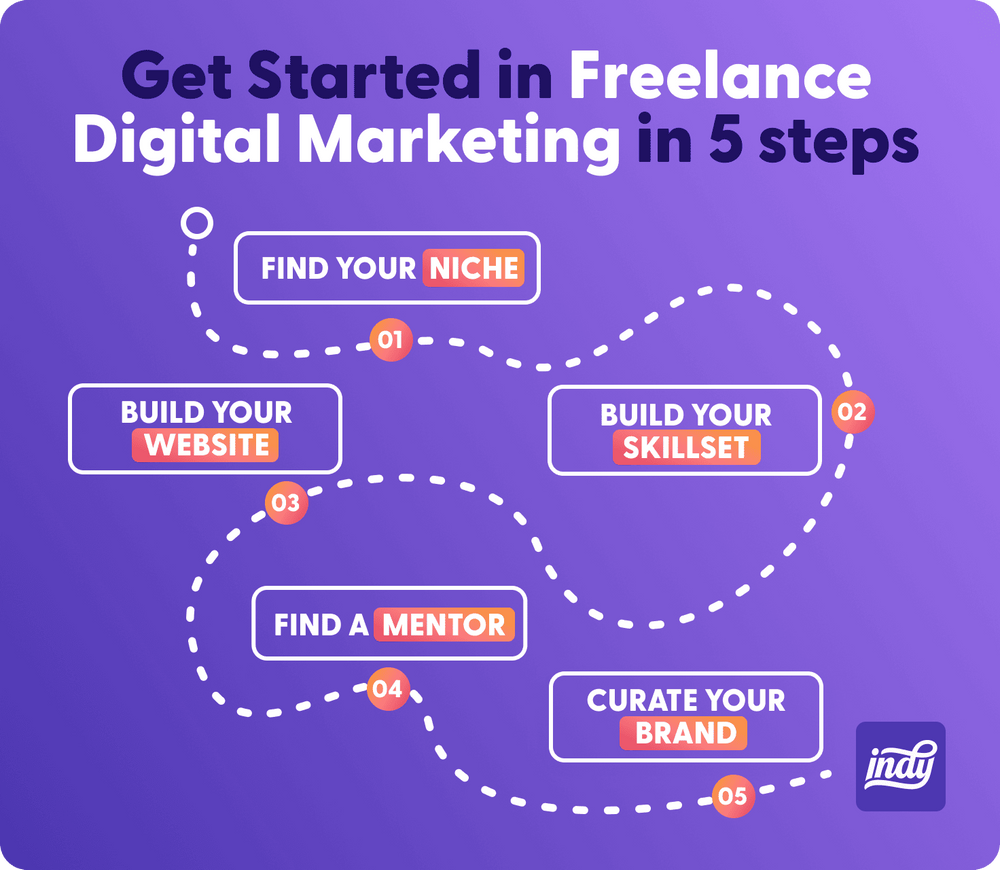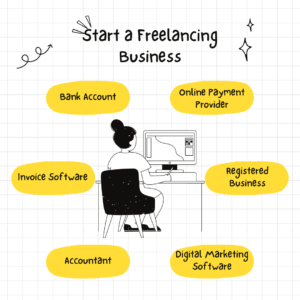Freelancing in Digital Marketing
A Guide to Navigating the Digital Landscape
In the rapidly evolving world of Freelancing digital marketing, freelancing offers a unique opportunity to blend flexibility with creativity. Whether you’re a seasoned marketer or just starting out, freelancing in this dynamic field can be both rewarding and challenging. Here’s a comprehensive guide to help you navigate the exciting journey of digital marketing freelancing.
1. Understanding the Digital Marketing Landscape
Digital marketing encompasses a broad range of activities aimed at promoting brands and products online. Key areas include:
– Search Engine Optimization (SEO): Enhancing website visibility in search engine results.
– Pay-Per-Click (PPC) Advertising: Managing paid ad campaigns on platforms like Google Ads.
–Social Media Marketing: Creating and managing content across social media platforms.
– Content Marketing: Developing engaging content to attract and retain customers.
– Email Marketing: Crafting effective email campaigns to engage and convert leads.
2. Building Your Skill Set
To succeed as a freelance digital marketer, it’s essential to continuously update your skills and knowledge. Consider the following:
– Certifications: Obtain certifications from platforms like Google, HubSpot, or Facebook to validate your expertise.
– Courses and Workshops: Enroll in online courses to stay current with the latest trends and tools.
– Hands-On Experience: Work on real projects, either through internships, volunteer work, or personal projects, to build a strong portfolio.
3. Creating a Strong Portfolio
Your portfolio is crucial in showcasing your skills and attracting clients. Include:
– Case Studies: Detailed accounts of past projects, highlighting your role, strategies used, and results achieved.
– Testimonials: Positive feedback from previous clients or employers.
– Samples of Work: Examples of successful campaigns, content, or ads you’ve created.
4. Finding Clients and Projects
Finding clients is a key aspect of freelancing. Here are some strategies:
– Freelance Platforms: Websites like Upwork, Freelancer, and Fiverr can help you find clients looking for digital marketing expertise.
– Networking: Join industry groups on LinkedIn, attend webinars, and participate in local business events to connect with potential clients.
– Referrals: Leverage your network and past clients to get referrals and recommendations.
5. Managing Your Freelance Business
Effective business management is vital for long-term success:
– Contracts and Agreements: Always use contracts to outline project scope, deliverables, timelines, and payment terms.
– Invoicing and Payments: Use professional invoicing tools to manage payments and keep track of your earnings.
– Time Management: Develop a schedule to balance multiple projects and meet deadlines efficiently.
6. Staying Up-to-Date
The digital marketing field is constantly evolving. Keep yourself informed about the latest trends, algorithm updates, and best practices:
– Follow Industry Blogs: Subscribe to blogs from top digital marketing experts and agencies.
– Join Online Communities: Participate in forums and social media groups focused on digital marketing.
– Attend Conferences and Webinars: Engage with industry leaders and peers to gain insights and network.
7. Scaling Your Freelance Business
As your freelance business grows, consider:
– Specializing: Focus on a niche within digital marketing to differentiate yourself and attract specific clients.
– Outsourcing: Delegate tasks or collaborate with other freelancers to handle larger projects or expand your service offerings.
– Building a Brand: Establish your personal brand through a professional website, blog, and social media presence.
Negative and Positive points of Freelancing
Positive Points:
- Flexibility and Autonomy:
- Work Schedule: Freelancers can set their own hours, allowing for a better work-life balance and the ability to work during peak productivity time
- Lack of Benefits:
- No Employer Benefits: Freelancers do not receive traditional employee benefits such as health insurance, retirement plans, or paid leave. This requires self-management of these aspects.
Conclusion
Freelancing in Digital Marketing
offers a flexible and rewarding career path with endless opportunities for growth and innovation. By continually enhancing your skills, building a solid portfolio, effectively managing your business, and staying updated with industry trends, you can thrive in this dynamic field. Embrace the challenges and enjoy the freedom that freelancing brings as you help businesses succeed in the digital world.
As a freelance digital marketer, you’ll have the opportunity to help businesses grow their online presence while managing your own schedule and workload. Here’s a more detailed look at how to navigate the world of digital marketing freelancing effectively.




